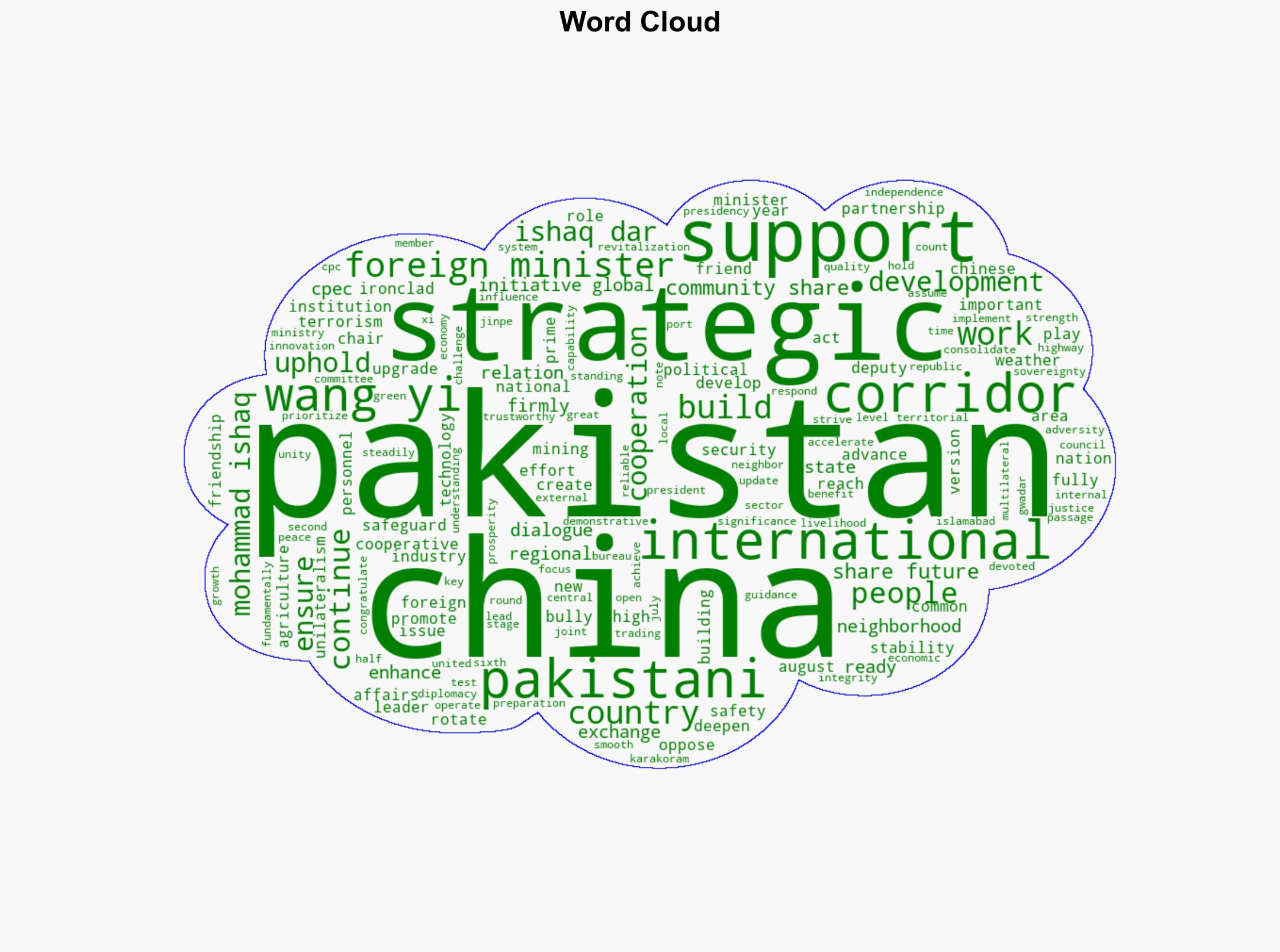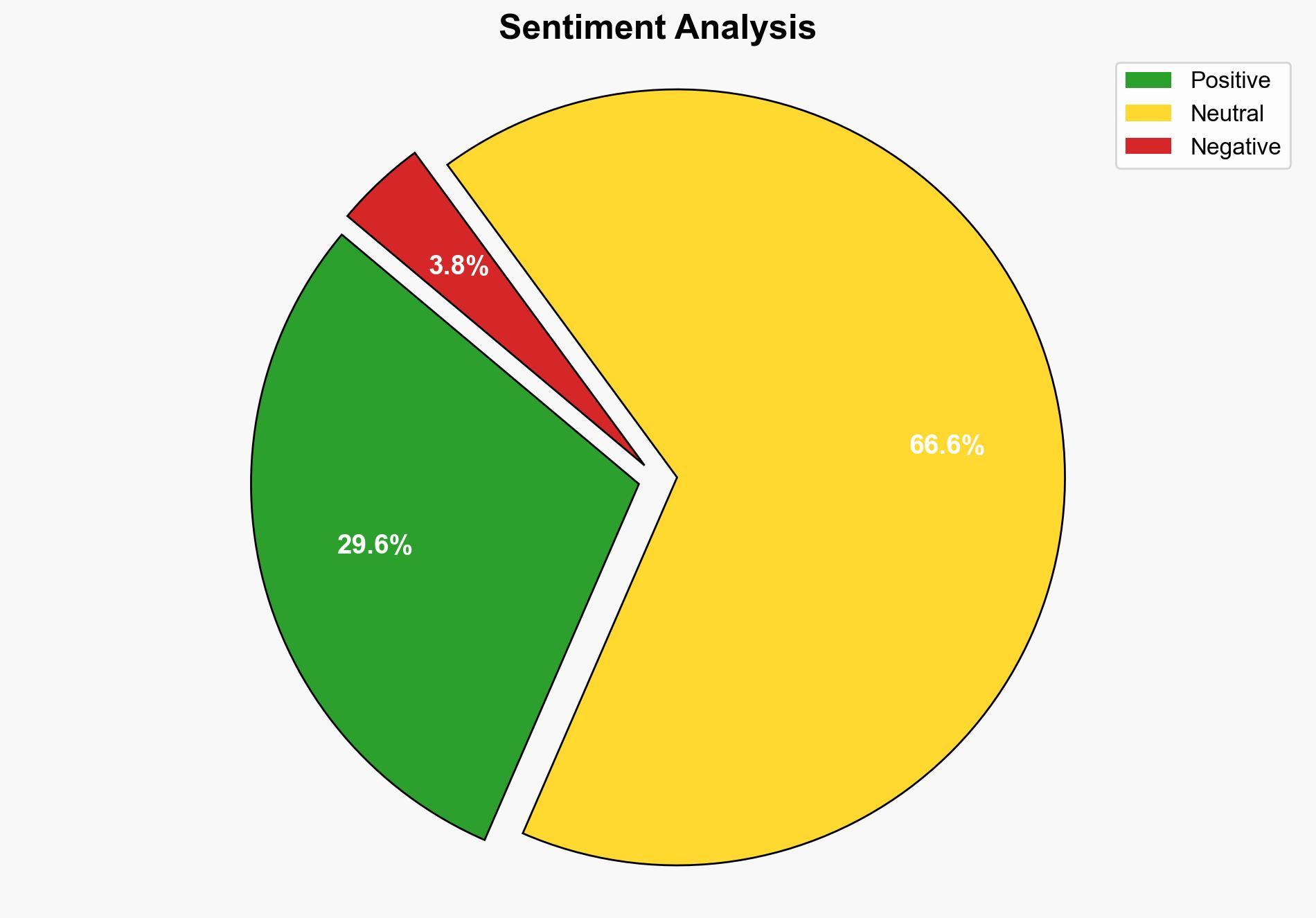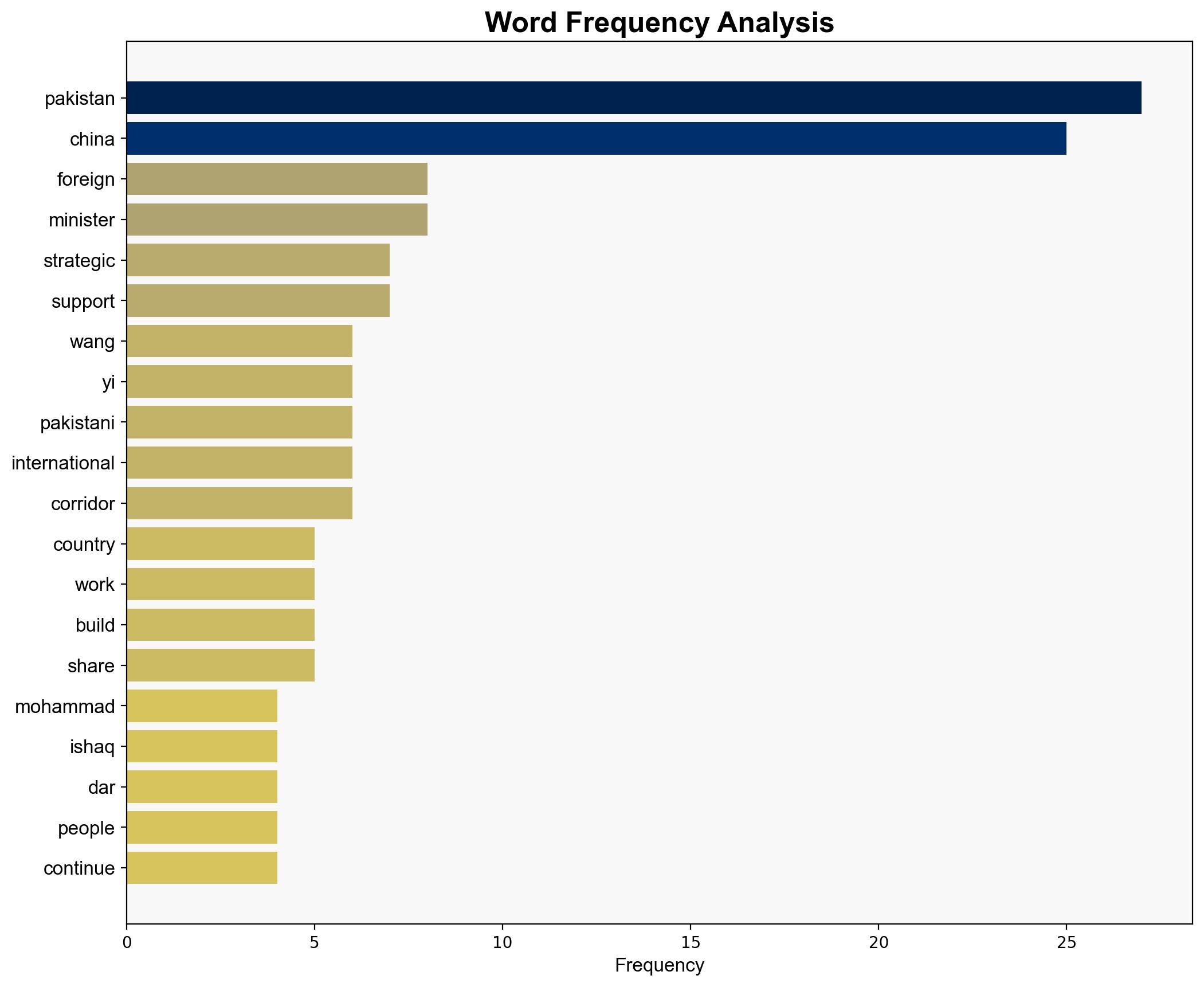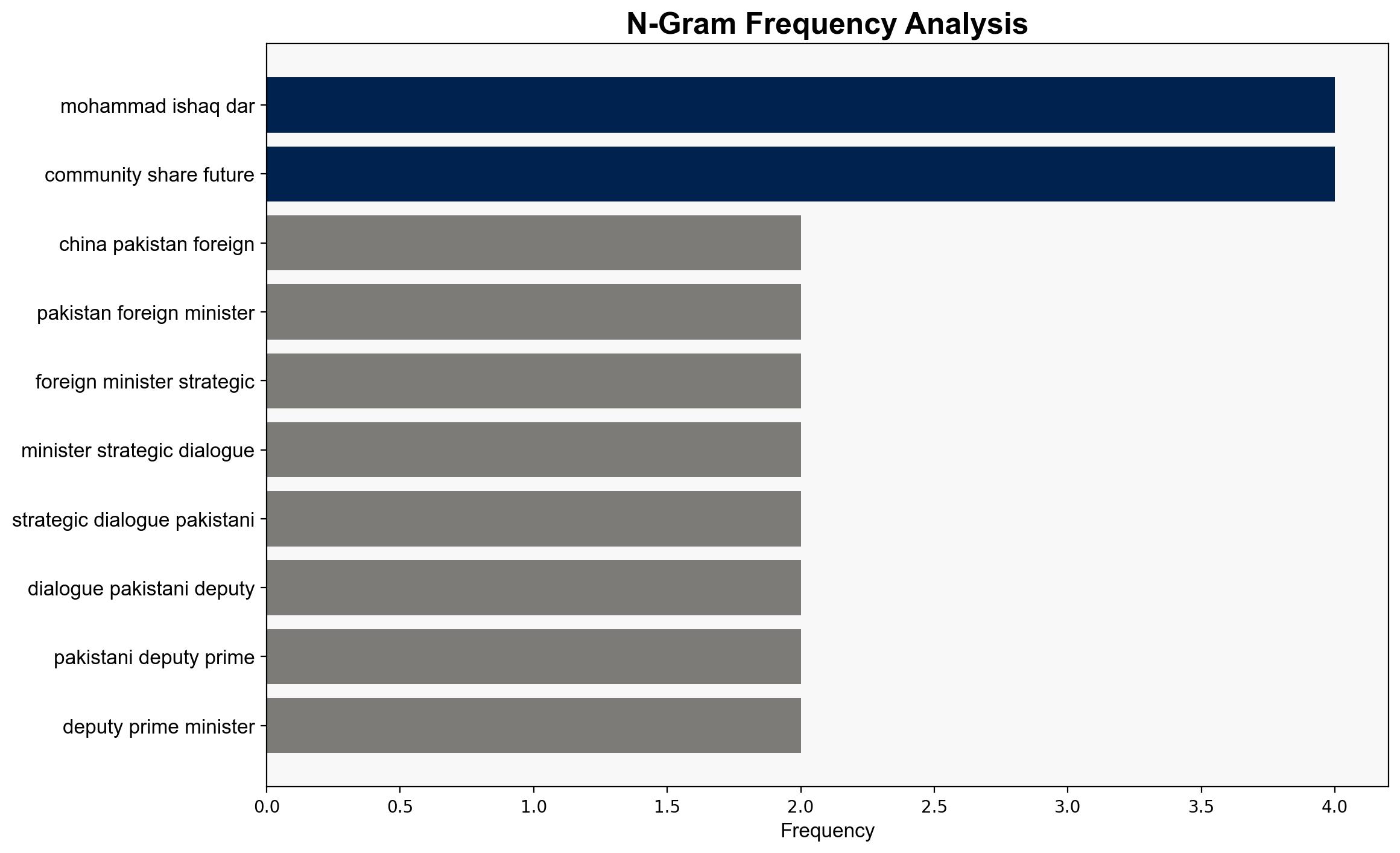Wang Yi Holds China-Pakistan Foreign Ministers’ Strategic Dialogue with Pakistani Deputy Prime Minister and Foreign Minister Mohammad Ishaq Dar – Globalsecurity.org
Published on: 2025-08-23
Intelligence Report: Wang Yi Holds China-Pakistan Foreign Ministers’ Strategic Dialogue with Pakistani Deputy Prime Minister and Foreign Minister Mohammad Ishaq Dar – Globalsecurity.org
1. BLUF (Bottom Line Up Front)
The strategic dialogue between China and Pakistan reinforces their longstanding partnership, with a focus on economic cooperation and regional stability. The most supported hypothesis is that China aims to solidify its influence in South Asia through economic and strategic partnerships, using the China-Pakistan Economic Corridor (CPEC) as a key tool. Confidence Level: High. Recommended action: Monitor developments in CPEC and regional security dynamics, and engage in diplomatic efforts to ensure regional stability.
2. Competing Hypotheses
1. **China’s Strategic Influence Hypothesis**: China is leveraging its relationship with Pakistan to expand its strategic influence in South Asia, using economic initiatives like CPEC to strengthen ties and counterbalance other regional powers.
2. **Economic Partnership Hypothesis**: The primary focus of the dialogue is economic, with China and Pakistan seeking to enhance mutual economic growth and development through CPEC, with strategic influence being a secondary outcome.
3. Key Assumptions and Red Flags
– **Assumptions**: It is assumed that both countries have aligned strategic interests and that economic cooperation will lead to enhanced regional stability. Another assumption is that Pakistan will continue to prioritize its relationship with China over other international partnerships.
– **Red Flags**: The potential for over-reliance on Chinese investments could lead to economic dependency. There is also a risk of regional tensions if neighboring countries perceive the partnership as a threat.
– **Blind Spots**: The internal political dynamics within Pakistan that may affect its foreign policy decisions are not fully addressed.
4. Implications and Strategic Risks
The strengthening of China-Pakistan ties could lead to shifts in regional power dynamics, potentially escalating tensions with India and affecting U.S. interests in the region. The economic focus on CPEC could spur economic growth but also increase Pakistan’s debt burden. Cybersecurity risks may arise from increased technological collaboration.
5. Recommendations and Outlook
- Enhance diplomatic engagement with Pakistan to balance China’s influence and ensure regional stability.
- Encourage transparency in CPEC projects to mitigate economic dependency risks.
- Scenario Projections:
- Best: Strengthened economic ties lead to regional stability and prosperity.
- Worst: Increased tensions with India and economic dependency on China.
- Most Likely: Continued economic cooperation with manageable strategic risks.
6. Key Individuals and Entities
– Wang Yi
– Mohammad Ishaq Dar
– Xi Jinping
7. Thematic Tags
national security threats, cybersecurity, counter-terrorism, regional focus




